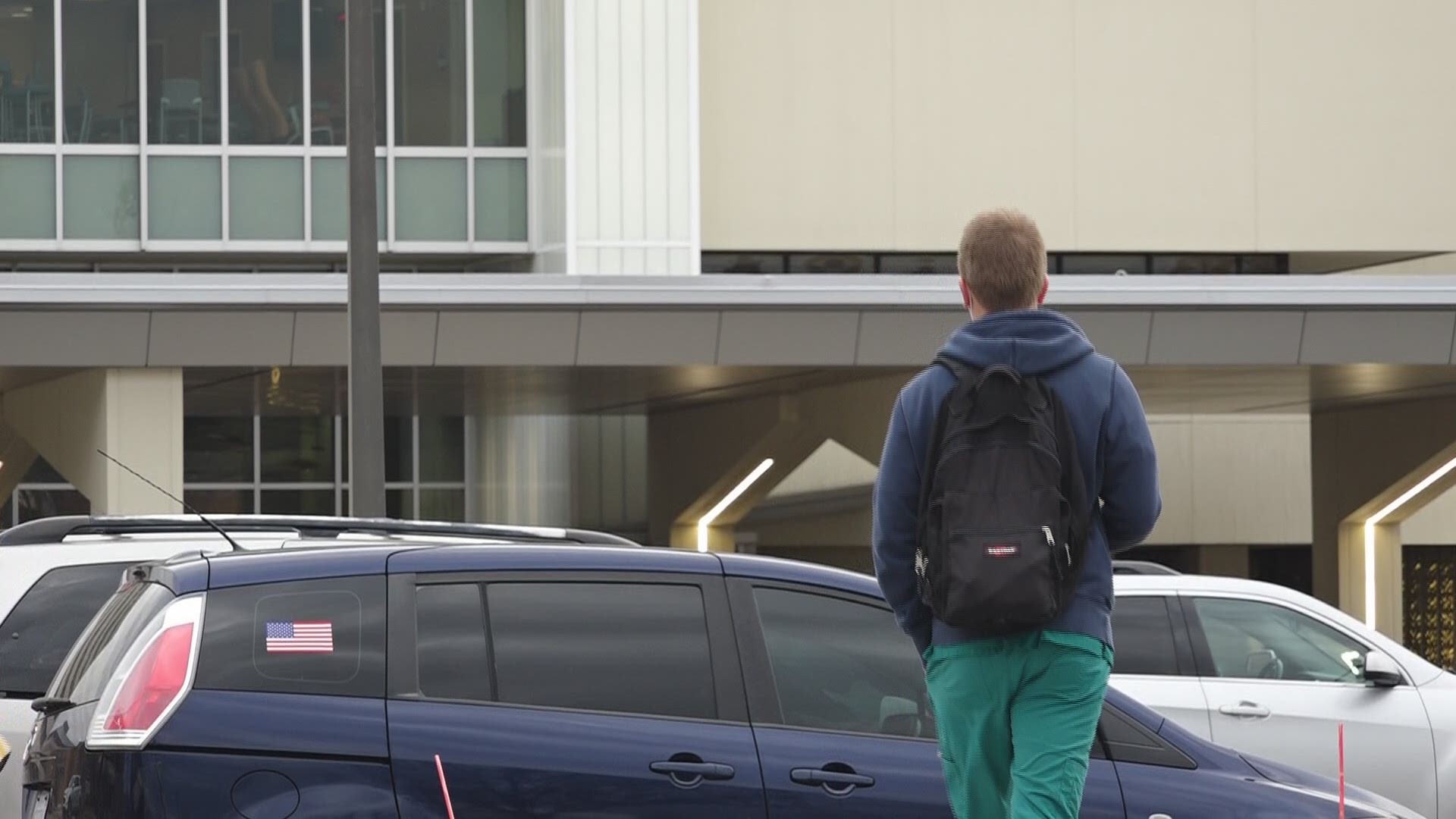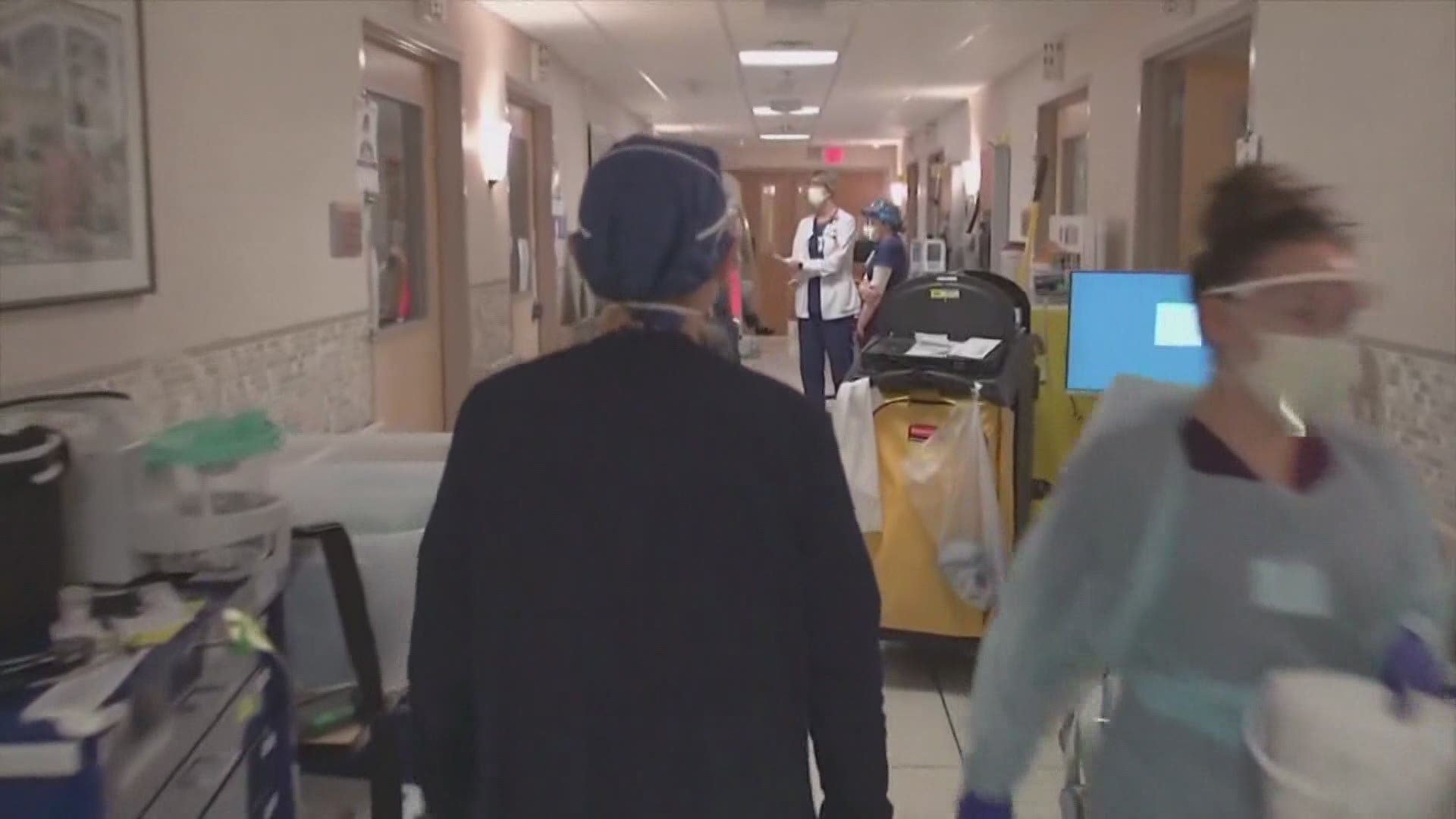WASHINGTON — A top Centers for Disease Control and Prevention official says surging vaccines to Michigan would not help the hard-hit state control the latest COVID-19 wave that has strained its hospitals and is raising concerns nationwide, because vaccines take two to six weeks to confer protection.
CDC Director Dr. Rochelle Walensky told reporters during a White House coronavirus briefing Monday that the answer in a crisis situation such as Michigan is facing is to go back to virus control basics.
"Really what we need to do in those situations is shut things down," Walensky said. "I think if we tried to vaccinate our way out of what is happening in Michigan, we would be disappointed that it took so long for the vaccine to work, to actually have an impact."
Walensky explained that at the same time, diverting vaccines away from other states where the situation isn't as dire right now could unwittingly seed the ground for future outbreaks elsewhere.
Dr. Justin K Skrzynski, who heads a COVID-19 unit at Beaumont Health Royal Oak, said he agrees. The health system has surpassed its fall surge hospitalization numbers.
"When you have somebody who's bleeding out the first thing is to stop the bleeding," Skrzynski said. "The best way we do that right now is with the same things we've been doing before, so masks, distancing, avoiding social gatherings."
Michigan's Democratic Gov. Gretchen Whitmer has called for the federal government to surge vaccines to her state, but the White House said last week Michigan had not ordered its full allotment of available vaccines. Federal officials say the current population-based formula is still the fairest way to distribute vaccines to states.
A mask mandate, limits on indoor gatherings and testing protocols for youth sports remain in place in the state of Michigan. But, the governor and the state health department have said it comes down to "personal responsibility" now.
Early on in the pandemic, people protested measures to stop the spread of COVID-19 in Michigan. Republican legislators and businesses filed lawsuits in attempts to block the governor's use of orders, which now are enforced by Michigan's Department of Health and Human Services.
Instead of an order, Whitmer urged a 2-week pause to high school in person learning, youth sports and indoor dining last week.
On Monday, she said the government's job was to step in when there was little known about the virus and people were unsure of how to protect themselves.
"We're in a different moment, every one of us has the ability and knowledge to do what it takes, and it's on all of us to do it and that's why we are imploring people take this seriously," Whitmer said.
Health leaders across the state say they are concerned by the increasing numbers.
"The hospitals are already at capacity, all the time, so adding extra patients really puts pressure on the entire system for the emergency department on up," said Dr. Preeti Malani, chief health officer at the University of Michigan.
"We need to get as many shots in arms as possible," Malani said. "In the meantime, we also need to be careful."
Even with a few weeks of buckling down, Dr. Peter Gulick, an infectious disease professor in MSU’s College of Osteopathic Medicine, says we would be in a better place.
Gulick said what's happening in Michigan is "like the perfect storm," between outbreaks of the B.1.1.7 variant, which has shown to be more easily spread, combined with loosened restrictions and 'COVID fatigue'.
He advises things like double masking, only gathering outdoors and rigorous testing in schools.
"I think if everybody does their part, I think we're gonna bring the numbers back down again, and we won't have to go to the extremes, hopefully," Gulick said.
►Make it easy to keep up to date with more stories like this. Download the 13 ON YOUR SIDE app now.
Have a news tip? Email news@13onyourside.com, visit our Facebook page or Twitter. Subscribe to our YouTube channel.


